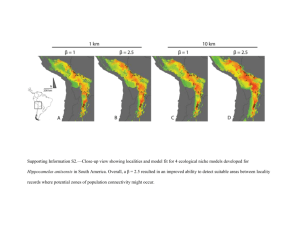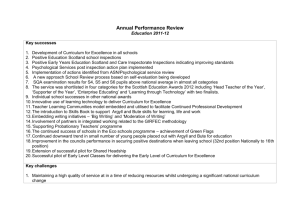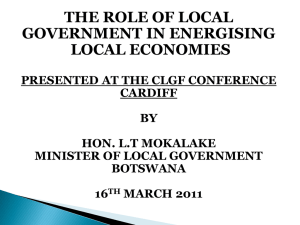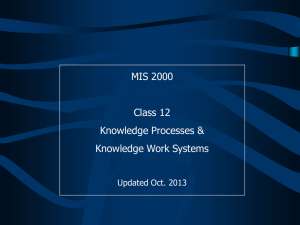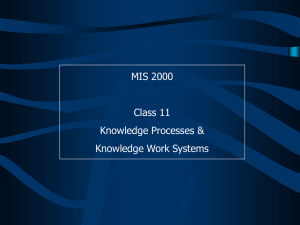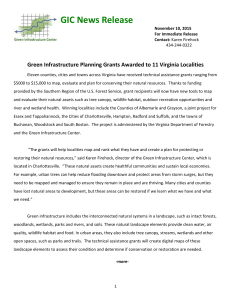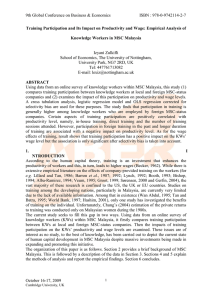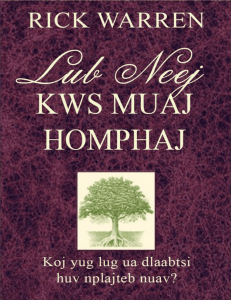Careers Scotland Highlands and Islands – Inclusive All Age
advertisement
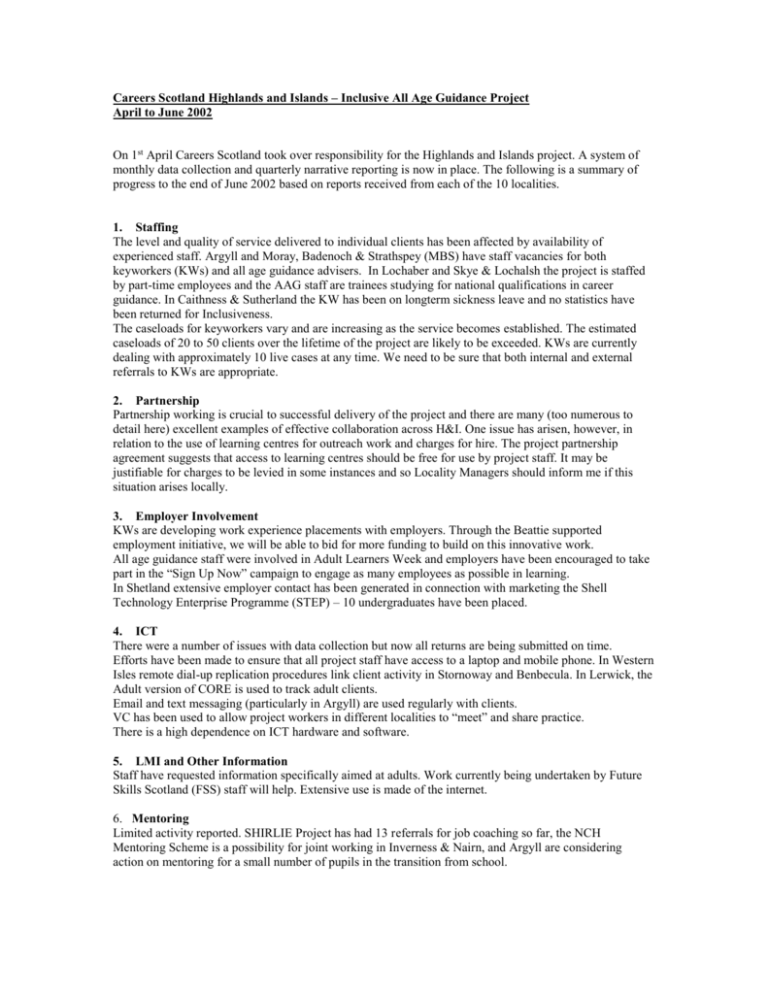
Careers Scotland Highlands and Islands – Inclusive All Age Guidance Project April to June 2002 On 1st April Careers Scotland took over responsibility for the Highlands and Islands project. A system of monthly data collection and quarterly narrative reporting is now in place. The following is a summary of progress to the end of June 2002 based on reports received from each of the 10 localities. 1. Staffing The level and quality of service delivered to individual clients has been affected by availability of experienced staff. Argyll and Moray, Badenoch & Strathspey (MBS) have staff vacancies for both keyworkers (KWs) and all age guidance advisers. In Lochaber and Skye & Lochalsh the project is staffed by part-time employees and the AAG staff are trainees studying for national qualifications in career guidance. In Caithness & Sutherland the KW has been on longterm sickness leave and no statistics have been returned for Inclusiveness. The caseloads for keyworkers vary and are increasing as the service becomes established. The estimated caseloads of 20 to 50 clients over the lifetime of the project are likely to be exceeded. KWs are currently dealing with approximately 10 live cases at any time. We need to be sure that both internal and external referrals to KWs are appropriate. 2. Partnership Partnership working is crucial to successful delivery of the project and there are many (too numerous to detail here) excellent examples of effective collaboration across H&I. One issue has arisen, however, in relation to the use of learning centres for outreach work and charges for hire. The project partnership agreement suggests that access to learning centres should be free for use by project staff. It may be justifiable for charges to be levied in some instances and so Locality Managers should inform me if this situation arises locally. 3. Employer Involvement KWs are developing work experience placements with employers. Through the Beattie supported employment initiative, we will be able to bid for more funding to build on this innovative work. All age guidance staff were involved in Adult Learners Week and employers have been encouraged to take part in the “Sign Up Now” campaign to engage as many employees as possible in learning. In Shetland extensive employer contact has been generated in connection with marketing the Shell Technology Enterprise Programme (STEP) – 10 undergraduates have been placed. 4. ICT There were a number of issues with data collection but now all returns are being submitted on time. Efforts have been made to ensure that all project staff have access to a laptop and mobile phone. In Western Isles remote dial-up replication procedures link client activity in Stornoway and Benbecula. In Lerwick, the Adult version of CORE is used to track adult clients. Email and text messaging (particularly in Argyll) are used regularly with clients. VC has been used to allow project workers in different localities to “meet” and share practice. There is a high dependence on ICT hardware and software. 5. LMI and Other Information Staff have requested information specifically aimed at adults. Work currently being undertaken by Future Skills Scotland (FSS) staff will help. Extensive use is made of the internet. 6. Mentoring Limited activity reported. SHIRLIE Project has had 13 referrals for job coaching so far, the NCH Mentoring Scheme is a possibility for joint working in Inverness & Nairn, and Argyll are considering action on mentoring for a small number of pupils in the transition from school. 7. Marketing & Publicity There has been a number of inter-agency events to raise awareness of services through the project – partnership working is a key strength. In Inverness & Nairn, staff participated in the Highland Spotlight event which included TV, press and radio coverage. Adult guidance services have been actively advertised through local press in several localities but staff in some localities have been reluctant to market services in case there is a demand which cannot be met. Shetland identified a specific requirement for a promotional leaflet explaining the benefits of guidance to adults. Staff are expecting appropriate marketing material to be produced nationally – we need to clarify this. 8. Innovation Innovation is almost becoming normal for KWs – actions to engage ‘difficult’ clients include playing golf, sailing, stripping wallpaper and taster courses. The success of these approaches is evident in the increased confidence and improved social skills of the clients. We will work up a number of case studies in support of mainstreaming the KW service. Videoconferencing has been used to support staff in rural areas. Workshadowing of colleagues in partner agencies has enabled the development of effective joint working practice. In Argyll CS premises have been made available to Social Work community support workers who have no local base. Staff who attended Impact training courses felt that this was delivered in an innovative way using young actors. 9. Current Issues The main concern is staffing – levels, varying salaries and the time necessary to undertake training/qualifications. Premises – lack of suitable premises in some localities, limited outreach facilities. Quality assurance – how do staff and clients know they are providing/receiving a quality service? The independent national evaluation of the project will provide evidence and help us plan staff and customer feedback as we work towards the EFQM model of QA. Data collection – there have been various comments about the adequacy of data collection and definitions. This is part of a developing national performance measurement and client management system. Marketing – lack of materials but increasing demand from clients. Good practice – limited exchange so far. We need to establish a mechanism. Get Ready for Work – there is still some confusion of how this fits with the project and concern about lack of training provision. Liz Galashan Head of Services to Individuals Careers Scotland HIE 24/7/02
